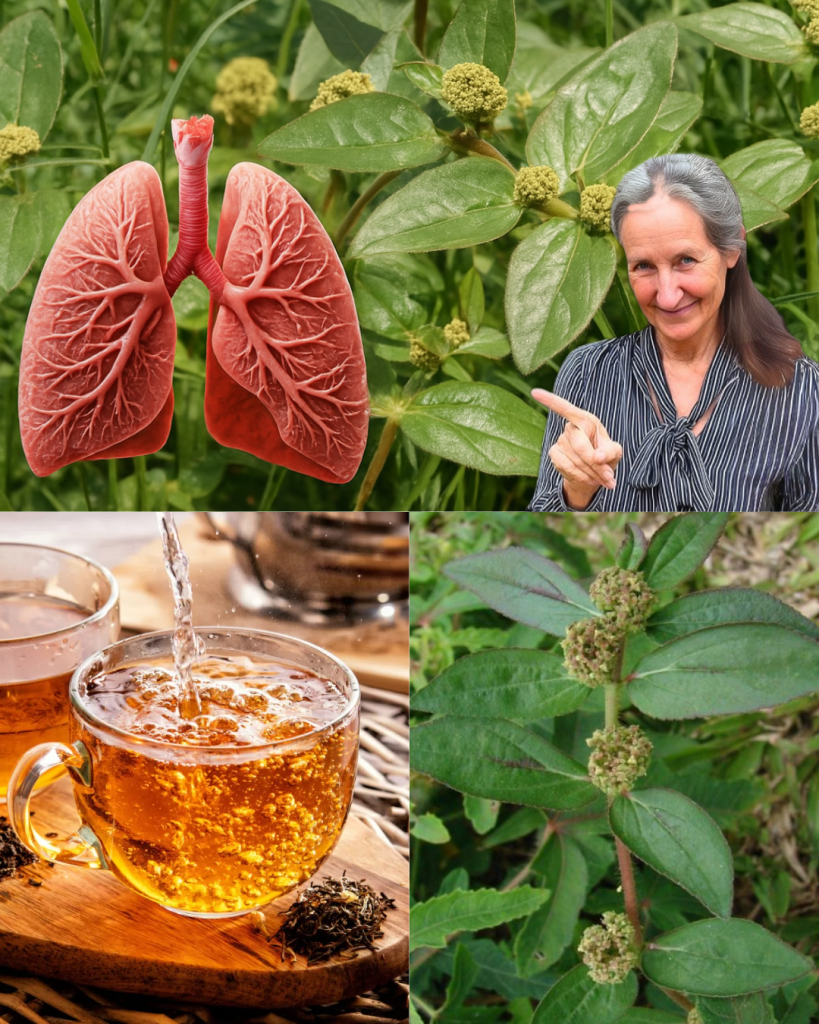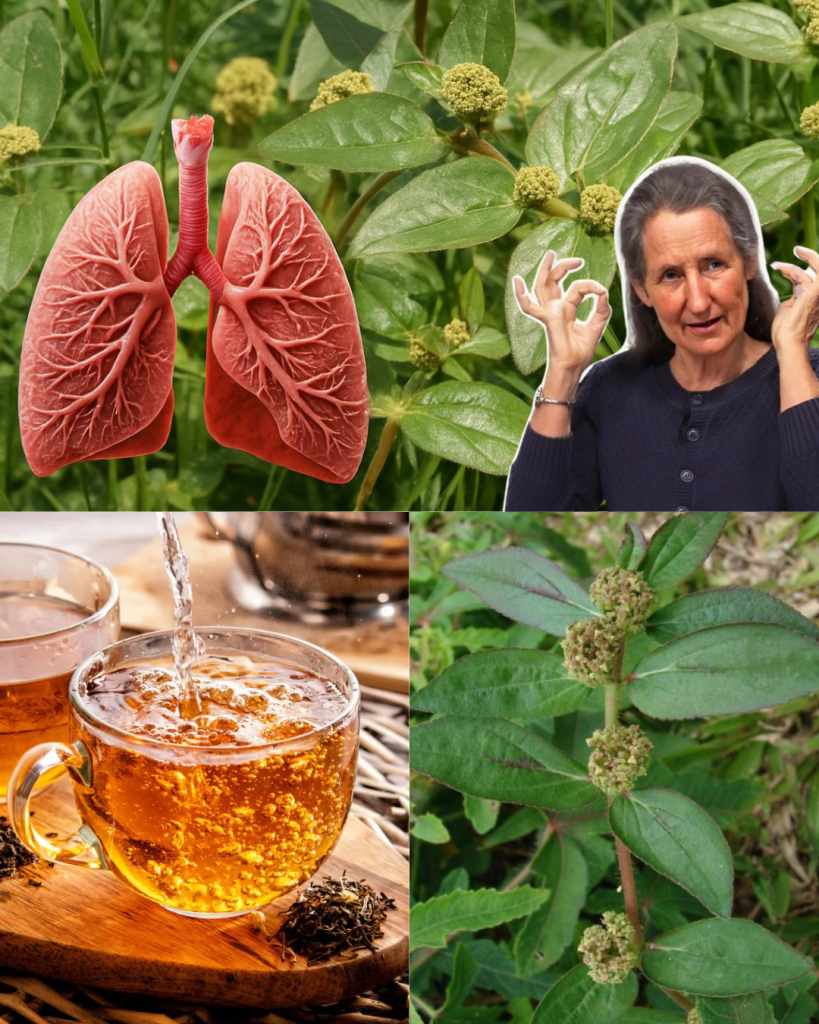Have you ever stumbled across a humble weed growing by the roadside and wondered if it holds secrets to better health? Euphorbia Hirta, often called asthma weed or snakeweed, is a small but mighty plant that’s been a cornerstone of traditional medicine for centuries. From soothing asthma symptoms to healing wounds, this herb is packed with therapeutic potential. But with great power comes great responsibility—using it safely is key. Ready to unlock the 30 remarkable benefits of this plant and learn how to harness them without risk? Let’s dive into its world of wellness and discover how it can transform your health routine! 🌿

What Is Euphorbia Hirta?
Euphorbia Hirta is a hairy, annual herb native to tropical regions, thriving in places like India, Africa, and the Philippines. Known by names like asthma plant or dudhi, it grows up to 60 cm tall with reddish stems and milky latex. Its leaves, stems, and flowers are rich in bioactive compounds like flavonoids, tannins, and alkaloids, which drive its medicinal magic. Used in Ayurveda and other traditional systems, this plant tackles everything from respiratory issues to skin ailments. But its potency demands caution—let’s explore its benefits and how to use it wisely.
30 Health Benefits of Euphorbia Hirta
Euphorbia Hirta’s versatility makes it a natural remedy for a wide range of conditions. Below are 30 scientifically supported and traditionally celebrated benefits that showcase its healing potential.
Respiratory Health
- Relieves Asthma Symptoms: The plant’s bronchodilatory properties relax airway muscles, easing breathing difficulties.
- Soothes Coughs: A tea from its leaves calms persistent or dry coughs.
- Eases Bronchitis: Anti-inflammatory effects reduce bronchial swelling for better airflow.
- Clears Mucus: Helps expel mucus from airways, aiding respiratory clarity.
- Manages Hay Fever: Reduces allergic responses like sneezing and congestion.
Digestive Wellness
- Improves Digestion: Eases bloating and indigestion when consumed as tea.
- Treats Diarrhea: Antimicrobial properties combat infection-related diarrhea.
- Fights Dysentery: Targets bacterial infections in the intestines.
- Soothes Stomach Ulcers: Protects and heals the stomach lining.
- Expels Intestinal Parasites: Effective against worms under medical supervision.
Skin and Wound Care
- Promotes Wound Healing: Topical poultices speed up recovery from cuts and abrasions.
- Fights Skin Infections: Antibacterial and antifungal properties treat boils and rashes.
- Reduces Acne Inflammation: Diluted extracts calm acne-prone skin.
- Soothes Eczema: Relieves itching and redness from eczema flare-ups.
- Treats Athlete’s Foot: Antifungal action tackles fungal infections on the skin.
Women’s Health
- Reduces Menstrual Cramps: Muscle-relaxing properties ease period pain.
- Balances Hormones: Traditionally used to regulate hormonal imbalances.
- Supports Lactation: May enhance milk production in nursing mothers (with guidance).
- Treats Styes: Stem sap soothes bacterial eyelid infections.
- Relieves Thrush: Gargling with a decoction treats oral thrush.
Immune and General Health
- Boosts Immunity: Regular use strengthens the body’s defense system.
- Reduces Fever: Helps manage fever, including in dengue patients.
- Detoxifies the Body: Supports natural toxin elimination.
- Fights Viral Infections: Shows activity against viruses like dengue and HIV.
- Lowers Blood Sugar: Hypoglycemic effects aid diabetes management.
Pain and Inflammation
- Relieves Joint Pain: Topical application soothes arthritis and joint swelling.
- Calms Toothache: Chewing leaves or applying juice numbs oral pain.
- Reduces Inflammation: Anti-inflammatory compounds help with conditions like arthritis.
- Eases Anxiety: Mild sedative effects promote relaxation.
- Supports Heart Health: May improve circulation and reduce cholesterol.
How to Use Euphorbia Hirta Safely
While Euphorbia Hirta offers incredible benefits, its potent compounds require careful handling. Here’s a step-by-step guide to using it safely and effectively. ✅
Preparation Methods
- Herbal Tea: Boil 1–2 teaspoons of dried leaves or stems in 1 cup of water for 10–15 minutes. Strain and drink in small doses (1–2 cups daily).
- Tincture: Soak dried herb in alcohol or glycerin for 2 weeks, shaking daily. Use 5–10 drops diluted in water, 1–2 times daily.
- Poultice: Crush fresh leaves into a paste and apply to wounds, boils, or inflamed areas. Cover with a clean cloth and leave for 20–30 minutes.
- Gargle: Use a cooled decoction of fresh herb as a mouthwash for thrush or gum issues.
- Topical Juice: Extract juice from fresh leaves and dilute with water (1:1 ratio) for skin applications.
Safety Precautions
- Moderation Is Crucial: Excessive use can cause nausea, vomiting, or stomach irritation. Stick to recommended doses.
- Consult a Professional: Pregnant or breastfeeding women, children, and those with medical conditions should seek expert advice before use.
- Avoid Fresh Latex: The plant’s milky sap can irritate skin and eyes. Handle with gloves and dilute before use.
- Test for Allergies: Apply a small amount of poultice or diluted juice to skin and wait 24 hours to check for reactions.
- Proper Preparation: Wash and dry the plant thoroughly to avoid contamination.
Sample Recipe: Euphorbia Hirta Tea for Respiratory Relief
- Gather 1–2 teaspoons of dried Euphorbia Hirta leaves or stems.
- Boil 1 cup of water in a small pot.
- Add the dried herb and simmer for 10–15 minutes.
- Strain the tea into a cup using a fine mesh strainer.
- Let it cool slightly and drink 1 cup, up to twice daily, for cough or asthma relief.
Note: Always consult a healthcare provider before starting any herbal treatment, especially if you’re on medication or have chronic conditions.

Potential Side Effects and Risks
Euphorbia Hirta is powerful, but improper use can lead to issues. Nausea and vomiting are common with excessive oral intake. The plant’s latex may cause skin irritation or allergic reactions if not diluted. Pregnant women should avoid it due to potential uterine contractions, which could lead to miscarriage. Those with stomach or intestinal disorders should steer clear, as it may worsen irritation. Always start with small doses and monitor your body’s response.
Why Euphorbia Hirta Deserves a Spot in Your Wellness Routine
Euphorbia Hirta’s vast array of benefits—from respiratory relief to immune support—makes it a gem in natural medicine. Its ability to tackle everyday ailments like coughs, skin issues, and digestive problems is backed by both tradition and science. But its potency demands respect. By following safe preparation methods and consulting professionals, you can harness this plant’s healing power without risk. Whether you’re sipping its tea for a calmer stomach or applying a poultice for glowing skin, Euphorbia Hirta offers a natural, accessible path to wellness. 🌱
Ready to explore this herbal powerhouse? Start small, stay cautious, and let Euphorbia Hirta elevate your health journey with its time-tested remedies.









